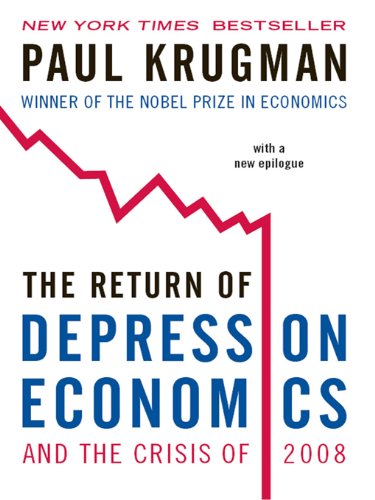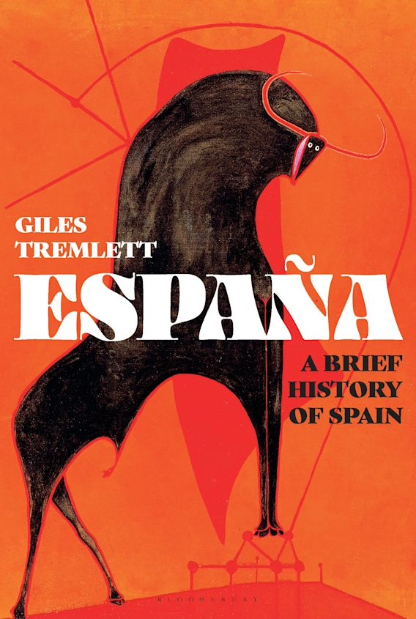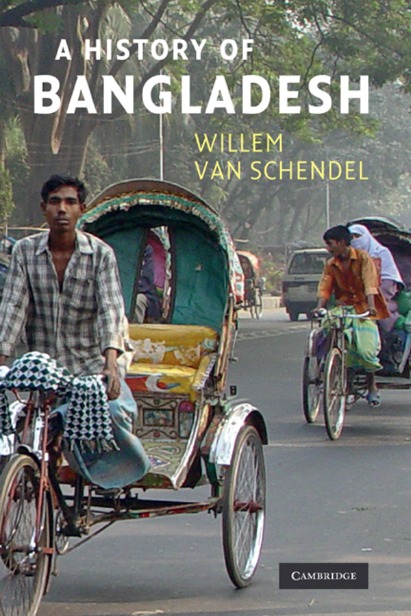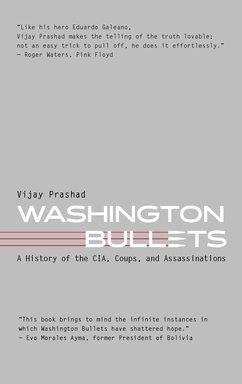Mozambique’s Samora Machel: A Life Cut Short, Allen F. Isaacman and Barbara S. Isaacman, Ohio University Press, 2020, pp. 257, ISBN: 978-0-8214-2423-0
Having begun challenging the commercial hegemony of Bantu-speaking communities in the region around the year 1500 in search of gold, ivory and slaves to fund its imperial adventures elsewhere, Portugal established a foothold in modern-day Mozambique in 1525 with the settlement on Mozambique Island, which became its colonial capital. The 16th century saw widespread resistance to the Portuguese onslaught; however, by 1607, the Kingdom of Muenemutapa ceded control of its mines to Lisbon, marking the beginning of its suzerainty. After it gained control of the land, the Empire began leasing prazos de coroa, large estates on arable land, on which the colonists were allowed to enslave Africans, raise private slave armies known as Chikundas and maintain law and order. Nonetheless, Malawian Empire, together with local chieftaincies, continued to resist Portuguese rule, forcing it to grant autonomous colonial status to Mozambique in 1752 (having been administered out of Goa before 1752).
However, with the expansion of capitalism and the establishment of global international trade networks, the demand for slave labour increased. Between 1817 and 1843, as per Isaacman’s 1983 book Mozambique: From Colonialism to Revolution, 100,000 slaves were shipped to Brazil from Mozambique, while 30% of slaves who arrived in Cuba in that period came from the same region. Isaacman claims that around 1 million Mozambicans were sold into slavery during the 19th century, and the slave-trade continued to be the dominant export in the region. Slavery dislocated communities, altered traditions and power relations, while the prazero system led to the consolidation of Portuguese rule over economic and natural resources, increasing inequality and structuring the society according to the metropole’s needs.
In the 20th century, with the rise of Salazar and after having consolidated its control over the whole of Mozambique, the colonists instituted an apartheid system of governance with Africans subordinated to the rule of the whites. Africans lived under a separate legal system but were nevertheless required to provide free or cheap labour to the Portuguese. African labour built the colony for Portugal, as the Empire itself was bankrupt. Article 1 of the 1899 Labour Code introduced chibalo, which allowed colonial officials to force Africans to work on plantations, lay railroads, build ports, or be servants. Those who escaped forced labour left Mozambique for South Africa’s mines, which also provided hard currency for the colonial regime. Exploitation begat resistance, and African people fought back. One in the long line of African fighters against colonialism was Samora Machel.
Samora Machel, Mozambique’s first post-independence President, is also just one in a long list of revolutionary African leaders murdered by the imperialist and colonialist forces. Before his untimely death on the night of October 19, 1986, when the Soviet-made and piloted Tupolev Tu-34 crashed in the mountains of Mbuzini on Mozambique’s border, the Portuguese imperialists had murdered Edoardo Mondlane and Amilcar Cabral. These came, of course, on top of tens of thousands of civilians and anti-colonial militants murdered in Portugal’s colonial wars that lasted from 1500 to the overthrow of Estado Novo and in a different guise thereafter.
In this newly published biography of the great Mozambican leader, two US-based scholars, Allen and Barbara Isaacman, reflect on Machel’s life and legacy. Both of them had a brief teaching stint at the Edoardo Mondlane University from 1977 to 1979, thus experiencing first hand the transformative experiment in governance pursued by Frelimo. They supplemented their personal experience with a broad reading of secondary literature and often neglected primary material housed in the Centro de Documentacao Samora Machel in Maputo. FRELIMO archives, the files of the notorious Policia Internacional de Defensa de Estado (PIDE) and intelligence services in Lisbon were used to build a profile of the man who fought for freedom. Moreover, Allen Isaacman conducted lengthy interviews with Machel himself and his closest family and comrades, who provided insights into his private life. Together, they wrote an excellent narrative biography of Machel that emphasizes the role of his environment in shaping his political and intellectual development and his struggle to transform Mozambique into a country for all.
When Samora Machel was born on September 29, 1933, in the southern Gaza province, Mozambicans were suffering from racism, exploitation, and other forms of colonial brutality at the hands of the Portuguese. He was, however, born into a family with a long history of opposing colonialism. Stories of his grandfather had a particular impact on him and instilled in him a passion for history and respect for his compatriots. They showed him that Africans could resist the injustices imposed on them. His relatively affluent upbringing was the product of his parents’ sacrifices. His father worked year-round in South African mines, while his mother worked the fields and cared for the children who also worked in the bush and herded animals. Isaacmans note the powerful influence his mother had on Machel by instilling self-confidence and a defiant attitude through her fearless defiance of the Roman Catholic church and colonial authorities. Similarly, economic injustices, such as when in 1940 the Salazar regime uprooted African peasants from the Zambezi river’s fertile fields and handed the rich fields over to the whites, shaped his upbringing.
Because of the Catholic Church, Machel’s education was almost stopped in the 3rd grade when he was told that he had to convert to sit for the exams. By now, a voracious reader who sought to further his education, he succumbed to the blackmail, converted and went on to become one of only a handful of African students who graduated. He wanted to become a doctor; however, the Portuguese barred African students from studying medicine and only allowed them to practice nursing, which Machel did at the highly competitive Miguel Bombarda Hospital, where he met Mozambicans from all over the country. Unlike other Mozambican revolutionary icons, like Antonio and Edoardo Mondlane, who had the support of sympathetic colonists to study at universities overseas, Machel fought for his position by himself.
At the hospital, his experience of racism continued. African nurses slept in inadequate housing by the psychiatric ward, and their treatment was significantly different from that of the colonists and mesticos. Despite hardship, injustice, and racism, according to the interviews by the Isaacmans, Machel held his own and refused to be subservient to the administrators. After a brief stint away from the hospital in Lourenco Marques, he returned and quickly became involved in political organizing as a response to the experience at the hospital and the society at large. This marked the beginning of his official political involvement in anti-colonial struggles. It was around this time that Machel married his first wife and his first child, Ornelia.
The late ’50s and early ’60s were a time of heightened political activity in Mozambique. Around Africa, anti-colonial independence movements were gaining ground, with Ghana, Mali, Cameroon, Senegal, Congo, Ivory Coast, Chad, and others having already gained their independence from their colonial masters. In Mozambique, with the return of Edoardo Mondlane from the US and the coalescence of various anti-colonial groups into FRELIMO, Frente de Libertação de Moçambique, independence seemed on the horizon. Machel had to flee Mozambique for Dar Es Salaam, where FRELIMO was stationed, to join them. There he chose to forgo the opportunity for further education and dedicate himself fully to the struggle, which landed him in a position of commander and an influential ideologue of the movement. Isaacmans note that it was in Dar that he married his second wife, Josina Machel, herself a revolutionary icon in the struggle for independence. His second marriage meant the estrangement from his family in Mozambique.
Fight against racism was the core of the movement, for it was precisely racism that was at the root of the injustices they experienced in society. Machel campaigned that FRELIMO rejects a simple racialist analysis that portrayed all whites as enemies but suggested that the enemy is the system of exploitation rather than individual whites. For him, whites, Indians and others were capable of fighting alongside Africans for everyone’s freedom. He noted that there were Africans who worked alongside colonial administration to collect taxes, force people into labour, sell slaves, and even kill their comrades, and thus being white or black mattered little. By 1963, FRELIMO’s leader Mondlane firmly accepted his thesis and stated that “we are fighting against Portuguese colonial rule, not against whites.” However, given the heterogeneous nature of the guerrilla group, this thesis was not widely accepted, and there were still others who believed that only Africans could wage a true anti-colonial war against Portugal. These disagreements came to a head in 1970 when a suspected PIDE bomb planted in a book exploded and killed Mondlane. Machel assumed leadership, and the dissidents were expelled. Isaacmans document these differences by way of showing how the comrades in arms experienced them.
By 1974, the new Portuguese regime began negotiating with FRELIMO and by September had agreed to transfer power. On June 25, 1975, Machel stood in Machava Stadium and declared “the total and complete independence of Mozambique.” However, with independence, Mozambique and Machel as the first President inherited an underdeveloped economy, dismal healthcare and education, and a lack of unity among countrymen. Machel set about rebuilding and forging a nation, focusing on ending tribalism, promoting health and education, securing employment for the people, and providing adequate housing. Moreover, his experience with gender equality in FRELIMO camps informed his attempts to counteract it in the newly independent Mozambique. Independent Mozambique under Machel stood to be an emancipatory project.
Despite Cold War-era fears of the West that Mozambique was a Soviet pawn, as Isaacmans show, the country received little to no assistance from what appeared to be their natural allies. Soviets were unwilling to invest heavily in Mozambique, and the military assistance they provided was inadequate for the threats the country faced. The threats came from apartheid South Africa and Rhodesia, as well as Malawi. These countries hosted, supplied and trained groups such as RENAMO, which actively sought to undermine Mozambique and Machel. They were formed by former FRELIMO dissidents whose ideological convictions were at odds with the official Frelimo ideology. Their frequent incursions, indiscriminate killings and threats against Frelimo, backed with NATO-allied South Africa whose weaponry outstripped Mozambique’s, set back the country. Moreover, due to colonial-era linkages between Mozambican and South African economy, the country depended on the inflow of cash Mozambicans earned in South Africa’s mines. When South Africa decided to limit the number of Mozambican miners allowed to work in the country, Mozambique became strapped for cash.
Money was, however, needed to institute “People’s power.” Machel sought to reinvigorate the economy. Between 1977 and 1981, 150 thousand workers were employed full time, and many industrial projects were completed. The flagship program of that period were the communal villages. Seeking to “socialize and modernize the countryside,” Frelimo organized machambas. Traditional forms of authority, culture, and practices were abolished and replaced with grupos dinamizadores, a form of self-governance that aimed to boost morale, resolve disputes, and provide political orientation for the peasantry. In 1980, almost 15% of the total number of peasants lived in communal villages. Isaacmans contend that this experiment was problematic from the outset. Communal villages led to displacement and alienation of peasants, while the state mechanics behind it were ill-conceived for the lack of expertise and technical requirements. The communal villages became a money-sucking machine and an avenue that Frelimo’s opponents could exploit to tarnish the image of the regime. Operation Production, which sought to transfer the urban poor and unemployed to the countryside, had similar adverse effects in allowing the ideological opponents of Frelimo to penetrate the society, eventually resulting in a bitter civil war.
Isaacmans fault Machel and Frelimo for trying to defend the revolution. In their attempts to fend off legitimate threats, they see attacks on individual liberty. With Rhodesia, South Africa, Malawi, the US and the insurgents they supported, it is easy to see why some would be deemed compromised and sent to reeducation camps. Quoting anti-Frelimo commentators, Isaacmans show that these reeducation camps were merely ways to resocialize individuals rather than tortuous and harrowing camps of yore. Mozambique was fighting a losing battle, yet it was trying to stay true to its revolutionary ideals. Ultimately, they succumbed, and Mozambique was forced to seek help from the World Bank and International Monetary Fund, who only too eagerly instructed Machel to dismantle the systems of social support and adopt neoliberal principles. As Isaacmans state, “by 1986, most of Samora’s dreams had evaporated.” Frelimo was forced to negotiate with RENAMO, who were gaining ground; with its economy in shambles, and no international socialist solidarity to help, Frelimo was forced to change. That same year, Machel was murdered.
Machel was instrumental in leading Mozambique’s anti-colonial fight. His dreams of a more just society, based on socialist principles that allow the full self-realization of all regardless of their skin colour, did not come to pass. He nonetheless held on to them until his assassination. It is this promise of a brighter future that people in Mozambique remember Machel for. As Isaacmans show, his legacy is commemorated in countless songs, dances and popular art.
Today, Mozambicans live under a fragile peace agreement between Frelimo and RENAMO, most recently signed in 2019. Ever since the original ceasefire in 1992, RENAMO has maintained military bases throughout the country and continues to periodically engage in violence. In the northern province of Cabo-Delgado, once the site of the most successful communal village, Islamist insurgency threatens the country’s natural resources and has uprooted thousands of people. In 2016, it was discovered that Mozambique held high levels of undisclosed debt, which affected its economic performance. The economy, heavily reliant on the sale of agricultural commodities, suffers from global price fluctuations. Exposure to external shocks and tight fiscal space due to high debt and borrowing leave the country to grapple with developmental challenges. More than half the girls who enroll in primary school drop out by secondary and only about 1 percent continue to university. The literacy rate is 47%, with female literacy rates significantly lower than that of males. Communicable and chronic diseases continue to plague Mozambicans, with tuberculosis, malaria, HIV/AIDS, prenatal disorders and malnutrition being the leading causes of death. A dire situation only made worse by climate change and disasters such as the 2019 Cyclone Idai that devastated the countryside. In other words, education and healthcare, dignity and equality, the leading causes of Machel’s crusades, remain in shambles. With his death and the ideological change in Frelimo that followed, his dreams seem farther than ever.




